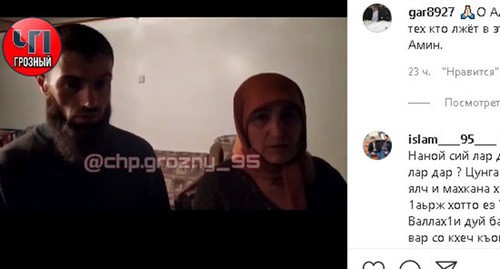
26 May 2020, 22:20
Psychological quarantine fatigue enhances protest moods in Chechnya
The people's reaction to an incident in the Samashki village proves that residents of Chechnya express dissatisfaction with the violation of their rights, despite the threat of coercion to public apologies, experts believe.
The "Caucasian Knot" has reported that a villager of Samashki in the Achkhoi-Martan District reported that law enforcers had beaten a man, who left home on the holiday of Eid al-Fitr despite the quarantine regime, and his mother. After the above report, a video was posted in an Instagram public account, supporting the local authorities. In the video, local residents are apologizing for spreading fake information about the conflict with law enforcers.
"People are already tired of being afraid" to violate the severe restrictions imposed in the region, notes Ruslan Kutaev, the president of the Assembly of Caucasian Nations.
"Although people are aware that they may be forced to apologize, they [nevertheless] do not restrain themselves. They speak with emotions about that. Then law enforcers identify them and humiliate them by forcing to say the opposite things," Ruslan Kutaev told the "Caucasian Knot" correspondent.
A professor from the Chechen State University (ChSU), who preferred to remain anonymous, also agrees that the psychological fatigue from the quarantine led to an increase in protest moods.
"The people's resistance amid the prolonged isolation is the cost of a psychological social reaction to the situation that tends to get out of control. Protest moods will grow, and this fact characterizes not only the situation in the republic, it happens all over the country," the scientist said.
The protest in the Chechen society is enhanced by the fact that in reality, the imposed restrictions are not equally strict for different categories of residents, suggests Chechen blogger Tumso Abdurakhmanov. "People did not stop being afraid, they are just losing their nerves. People are at the limit. They have been deprived of any chance to go out on the streets, to earn money. They have been made dependent on humanitarian aid. Law enforcers beat and publicly humiliate them for violations of the regime of self-isolation. Meanwhile, top-ranking officials and their associates do not limit themselves in any way, defiantly live in a big way, meet each other, and arrange picnics with barbecue and mini-concerts," Tumso Abdurakhmanov told the "Caucasian Knot" correspondent.
This article was originally published on the Russian page of 24/7 Internet agency ‘Caucasian Knot’ on May 26, 2020 at 03:10 pm MSK. To access the full text of the article, click here.
Source: CK correspondent




